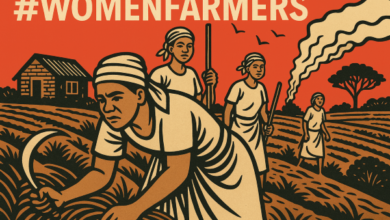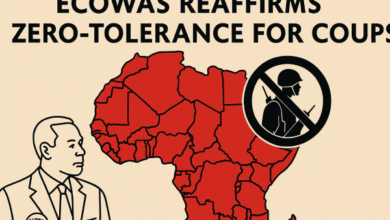Condemnations trail proposed nationwide “Okada’’ ban

By Reporters
Some residents of the Federal Capital Territory (FCT), have advised the Federal Government to provide alternatives before banning commercial motorcycle operations also known as “okada’’ to avoid creating more security challenges in the territory.
Some commercial motorcyclists in some area councils in the FCT also cautioned government on the ban, saying it would not only affect businesses but might cause more suffering on the masses.
The residents and the motorcyclists, who spoke in separate interviews with the News Agency of Nigeria (NAN) on Monday in Gwagwalada, Kuje and Abaji Area Councils, Abuja Municipal Area Council (AMAC), expressed fear that if the Okada ban was not properly planned, it would rather create more insecurity in FCT.
The Federal Government through the Attorney-General and Minister of Justice, Mr Abubakar Malami had on July 22, announced that it was considering placing a ban commercial motorcycle and mining activities as part of its strategy to curb insecurity.
According to the residents, many of the operators will be rendered jobless and may be recruited by terrorists and bandits to cause more havoc, especially at the satellite towns.
NAN reports that the ban on Okada operations, which started in some parts of Lagos led to a surge in transportation costs, a development, which some stakeholders said could worsen the standard of living for its residents.
The ban has left many commuters with two options either to wait in long queues at Bus Rapid Transit (BRT) loading stations or take commercial buses which have more than doubled their fares.
Meanwhile, Mr Abraham Gado, a resident of Kuje Area Council, decried the already high rate of unemployed youths in the country, saying that the ban would add more unemployment to the labour market.
Gado advised that the bandits and other criminal elements in the country should be confronted professionally to save lives and property and not to ban okada operations.
“We are already having security challenges in the country; the government should provide alternatives to those Okada riders before banning their activities.’’
Mrs Laraba Jigo, a resident of Abaji Area Council said the development would worsen the traffic situation as some people who ride bikes would now have to drive.
According to her, majority of the population suffer from abject poverty and do not have vehicles of their own, saying that the ban will further make them vulnerable and miserable.
“Many of the okada riders are into the business to feed themselves and their families and there is a need for the government to provide alternatives before the ban.
“These people cannot afford three square meals daily let alone possess transportation vehicles.
“So the ban on motorcycles operation will compound their problems and make many people jobless,” she said.
Another resident in Gwagwalada Area Council, Samuel Danjuma, also said that aside from making transportation difficult for the poor citizens, the decision would increase the rate of crimes in some communities.
However, Danjuma maintained that transportation “is an essential part of human activity and it takes a significant share from one’s income.’’
“We call on our senators, House of Representatives members, traditional and religious leaders to prevail on the Federal Government to critically look at the decision,” he said.
Also some commercial motorcyclists in Bwari Area Council of the FCT said ban on use of motorcycles across the country would not only affect businesses but might cause more suffering on the masses.
Mr Iliya Mohammed, the Chairman, Kaduna-Kafanchan Transport Services Union in Bwari said that the ban might only do more harm than good for citizens of the country.
According to him, bandits and other terrorists disrupting the peace of the country can use the motorbikes in the forests where they mostly camp without being apprehended.
“They can use any vehicle and when they approach their destination, decide to park and continue on foot. They have different means of transportation.
“After banning the motorcycles and they continue in cars, will you now ban use of cars, no.’’
Similarly, Mr Adamu Garba, a commercial motorcyclist said that the ban would increase more crimes and lead a lot of youths to eventually join criminal groups.
Some of the riders, Garba said were honest business men seeking daily income to sustain their families and were not depending on government or anyone.
Garba said that stopping them from their means of livelihood would not only affect their businesses but force the users of these commercial means of transportation to trek to their destinations where other commercial vehicles cannot access.
“They need to replace this commercial activity with another one for us and I’m not sure they are willing to do that. If they insist, this will not only be inhuman but unjust to genuine cyclists like me.
“Next they may say to ban “Keke’’ (tricycle) and only God knows which would be next after that.’’
Residents of Abuja Municipal Area Council (AMAC) in the FCT also expressed divergent views over the proposed ban on commercial motorcycle, popularly known as ‘Okada’, across the country by the Federal Government.
Some residents of the area council who spoke with NAN said it was a welcome idea, while others said it was inhuman.
Mrs Motunrayo Adisa, a resident of Jiwa, said it was the easiest means of transportation for people in the rural communities as such it should not be banned.
“If you look at this issue, you will see that okada has its own advantage and disadvantage.
“Though it is not the masses fault that these evil people have turned it to a means of perpetuating their evil acts, but the Federal Government should not ban it as it will be difficult for the poor to move around.’’
Mr Matthew Lawrence, a commercial motorcycle rider said the Federal Government should rethink its decision to ban okada as it would increase the rate of unemployment in the country.
“For me, this is my source of income and if the Federal Government bans the use of okada, what will I use to feed my family.
“The government should employ the services of security experts to find a lasting solution to the security threats we are facing, because we that are using okada legally, should not be made to pay the price,” he said.
Mr Ibrahim Lawani, a civil servant said it was a good idea but the government must provide alternative means of transportation, if it eventually banned it.
“I know that they are doing it for our good, but if they want to ban it, they should provide alternative means of transportation, especially ‘Keke’ or mini buses that will be plying the rural communities.
“Also the government should give it out to unemployed people for free or at little rates, so that those affected by the okada ban will not remain in the labour market.’’
However, the FCT Minister Malam Muhammad Bello had reiterated his administration’s earlier ban on Okada, and restriction on “Keke NAPEP’’ operations in the FCT.
According to the minister’s executive order, operations of motorcycles, popularly known as okada have been completely banned within the Federal Capital City (FCC) including Kubwa and Airport expressways, while the tricycles known as Keke NAPEP, have been restricted to estates.
NAN reports that the FCTA had in 2006 banned activities of commercial motorcycle operators popularly called ‘Okada’ within the city centre.
Also, Mr Bello Abdullateef, the Director of the Directorate of Road Transport Service (DRTS) said commercial motorcycle operators need to obtain a licence to operate in areas they were allowed to operate and in the suburbs.
Abdullateef said that aside from traffic violations, the riders were also being used to deliver hard drugs across the city.
“The menace arising from many okada riders is not just about traffic violations but also perpetration of crime. Okada is also used to deliver hard drugs across the city.
“It requires a multi-sectoral approach to deal with the menace. We are introducing rider’s certification for those using okada for dispatch activities.
“Therefore, until you are verified by the directorate of road transport service, you may not be able to ride a bike across Abuja. We are remodelling the licensing and regulations as well.’’
On his part, the FCT Commissioner of Police, Sunday Babaji said the reason behind impounding of motorcycles in Abuja was as a result of criminal activities being perpetrated by persons using motorcycles.
“They use them in snatching bags, bank robberies, attacks on residential areas and they were becoming security threats to the FCT.
“On that note, there was outcry that led to the banning of motorcycles within the city in 2006 by the FCT Administration, since then we have been working together in impounding Okada,” she said.
On his part, Mandate Secretary, FCT Transportation Secretariat, Usman Yahaya said despite the challenge posed by the motorcycle operators, the secretariat would not be overwhelmed.
“The motorcycle operators are stubborn but we won’t relent in our efforts to stop them from operating in the city centre.’’
Reacting to the proposed nationwide ban of Okada operation, Mr Yakubu Jacob, a resident of Kurudu suburbs community, advised the administration instead of banning them “it is better to register them and integrate them into the ever expanding transportation landscape’’.
Jacob said that their biometric data should be collected after which they should be allocated to the areas agreed with their unions where they would only operate.
Malam Muhammad Sule, a trader at Karu market said Okada riders represent a very important economic bloc in the FCT that provide the needed services to the population.
Sule, therefore, advised the Federal Government to have a rethink about the proposed nationwide ban on Okada operation because it would increase the rate of unemployment and insecurity in the country.
(NAN)










